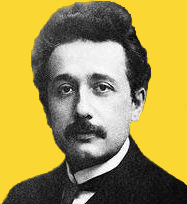Love ~ Joy Cometh in the Morning
Article by Nellie B. Mace
From The Christian Science Sentinel, June 12, 1937 Vol. 39 No. 41 ~ Pg 803
In a familiar old hymn, based on Scriptural promise, runs the tender encouragement,
'O weary pilgrim, lift your head,
For joy cometh in the morning.'
This picture of the weary pilgrim traversing the night of sadness and, perhaps, hopelessness, aptly portrays the state of mind from which many an individual today surveys the world and his own place therein. Indeed, all men have been as pilgrims in the world, going forward, halting, falling, and maybe rising again and striving onward. Oftentimes, human pathways have run along pleasantly, as through sunny, flower-strewn meadows, or over easy hilltops of happy, satisfied ambitions. But to very, very many the pathway before them seems to lead through fens and thickets of difficulties and into the gloom of loss, sorrow, defeat. And, eventually, to each one comes the sense of helplessness before the supposedly inexorable laws of mortal existence.
Throughout the history of monotheism, however, to earth's pilgrims have been given precious gleams of spiritual reality, and the Word of God has been uttered by patriarch and prophet and, above all, through the teaching of the master Christian, calling to the human consciousness to awake from the night of materialism and to behold the light of true being. Such faith in something better and more stable than appears in troubled human experience has led men onward, hoping, questioning, seeking, until in our own time one was prepared to receive a new revelation of Truth, which has been given to the world in Christian Science.
Having discerned the Science underlying the Scriptural revelations, and particularly the teachings and works of Christ Jesus, this revelator, Mary Baker Eddy, declares with confidence on page 354 of her textbook, 'Science and Health with Key to the Scriptures,' 'The night of materiality is far spent, and with the dawn Truth will waken men spiritually to hear and to speak the new tongue.' Christ Jesus promised that his followers should heal sickness and suffering, overcome sin and all in harmony, and 'speak with new tongues.' This new tongue Christian Science is speaking, in showing the spiritual meaning of the Scriptures, especially of the Master's teachings, which, through his mighty works, he proved to be true.
This new revelation is as a morning enlightening the world, showing true existence to be wholly spiritual and harmonious, and making possible the demonstration of this fact in our present situation. Everyone is familiar with the glory of the morning light which dispels the shades of night, brings comfort to the weary, warmth to the unfolding flowers and ripening fields, or radiant beauty to snow-clad peaks. So welcome, so essential to men and to the land is the morning light that it is almost universally recognized as typical of the appearing of good. In the record of the true creation, in Genesis, successive evenings and mornings mark the appearing of spiritual ideas. And in Science and Health (p. 591 ) Mrs. Eddy in part defines 'morning' as 'symbol of Truth; revelation and progress.' Having caught some gleam of eternal facts and of the temporal nature of human discord, the Psalmist could well declare that 'weeping may endure for a night, but joy cometh in the morning.'
The beauty of morning, spiritually understood as 'revelation and progress,' is that we can rejoice in it now, for in the realm of reality there is no night. No darkness of fear, hate, doubt, bitterness, can enter into the light of Truth. Inevitably, as spiritual understanding is gained, the false sense of darkness, the night of sadness, anxiety, rebellion, despair, loses its apparent reality and disappears. Nothing can hinder the coming of the morning of revelation; nothing can prevent the eventual passing of the night of materiality. Those who are seeking and finding God, who are laying aside false beliefs of reality in matter, are progressing toward a fuller understanding of eternal life. To prove these truths in small beginnings and then progressively in broader ways is to glorify God, of whom the Apostle John said, 'God is light, and in him is no darkness at all;' for God, unchanging Love, can know no evil. He holds and beholds His own creation in perpetual harmony, loveliness, perfection.
Those students who find themselves standing alone in some dark hour know with what steadfastness they must keep their lamps burning, while they pray for more love, humility, and understanding, watching for the morning of 'revelation and progress.' They know that they cannot go backward into the darkness, and that they cannot pass through some Peniel, struggling to overcome material sense, adhering to Truth, without laying off more of the belief in materiality, more of the desire to cling to the mortal dream without realizing more of the Christ-spirit—more of serenity, joyfulness, and gratitude for the assurance of God's allness and availability.
The disciples had been gladdened by their Master's reappearance after his seeming defeat, and he had said unto them, 'Receive ye the Holy Ghost;' yet some of them essayed to go back to their former occupation as fishermen. Despite their skill and their familiarity with conditions pertaining to their trade, that night they caught nothing. They had been with Jesus, had listened to his teachings and had measurably understood them. Did his triumph seem to them too far beyond their ability to follow? But they could not go backward to what they had thought and done before they knew him. Their attempt to do so ended futilely.
But in the morning Jesus stood on the shore and called to them. He directed them to cast their net on the right side of the ship. Then in their remarkable success under his guidance they recognized him anew. A morning, bright with love and gratitude, shone on them. They learned that having seen and received the Christ, there could be henceforth for them only a spiritual going forward, loving, proving, triumphing. Whatever night of mortal resistance there might be before them, the light of Christ would lead them through the darkness, and do so again and again, to successive mornings of 'revelation and progress.'
As it was with these fishermen disciples, so it is with each one who receives the Christ, Truth, in Christian Science. Though at times one may wander in valleys of depression, where 'weeping may endure for a night,' yet always through prayer and steadfast adherence to Truth the light of fuller revelation comes, a clearer understanding of God and man is won, and in the morning light more of the beauty of holiness is revealed, more of the divine nature assimilated and errors of belief abandoned. So must we progress in the continual acceptance and proof of the truths of Christian Science divinely revealed to us.
Christian Science is thus enabling all who seek it to prove this redeeming truth in their daily lives. Whatever sorrow, loss, or want may appear, one can sing with the Psalmist of God's 'lovingkindness in the morning.' Knowing well from her own experience in overcoming the falsities of material sense through spiritual realization, Mrs. Eddy gave the reassuring message to all pilgrims through the night of error (Miscellaneous Writings, p. 276 ): 'Out of the gloom comes the glory of our Lord, and His divine Love is found in affliction. When a false sense suffers, the true sense comes out, and the bridegroom appears. We are then wedded to a purer, higher affection and ideal.' And in the lines preceding these words she says, 'In Christian Science the midnight hour will always be the bridal hour, until 'no night is there.' The wise will have their lamps aglow, and light will illumine the darkness.' If there seems to be present gloom, it will fade before the constant assurance that 'joy cometh in the morning,' the morning of eternal good, wherein true selfhood in Christ is found. 



